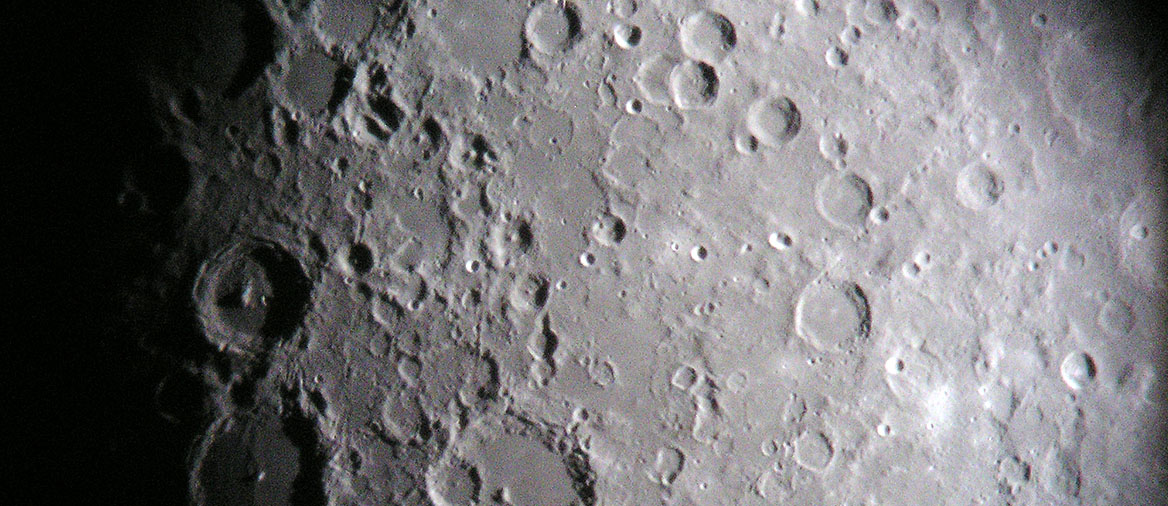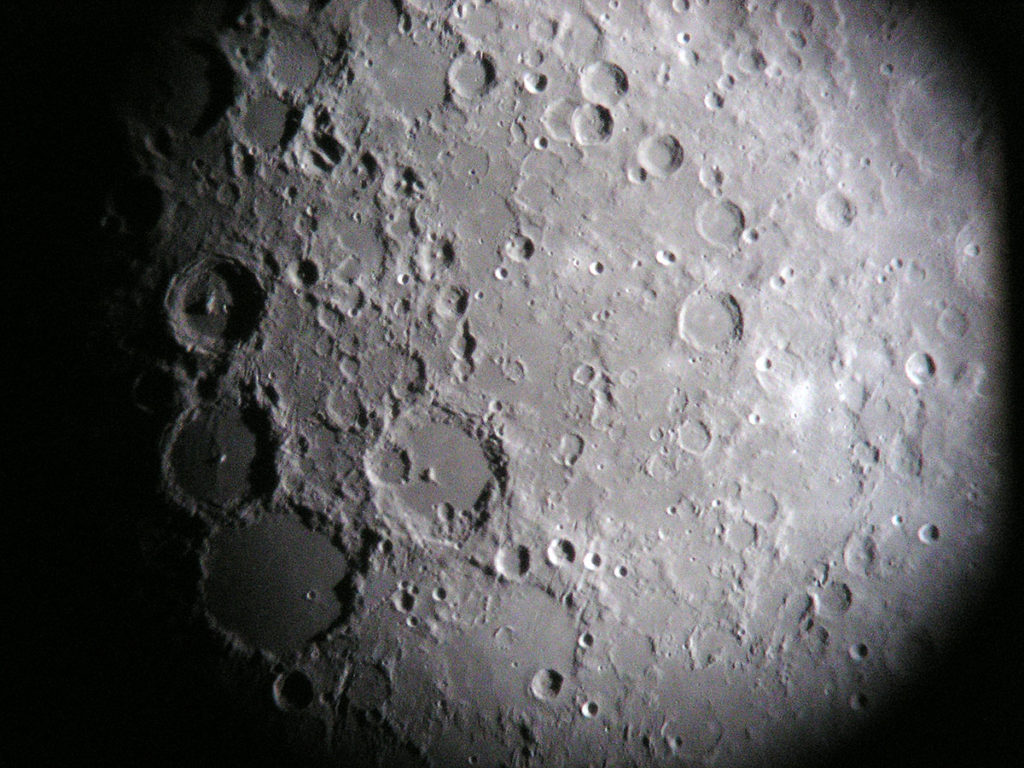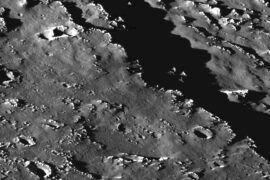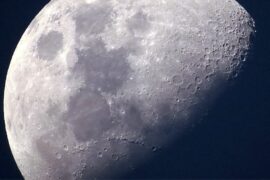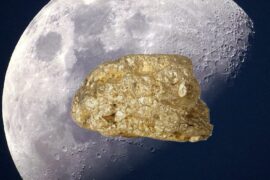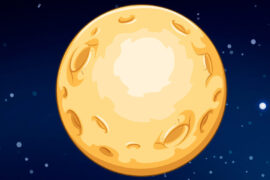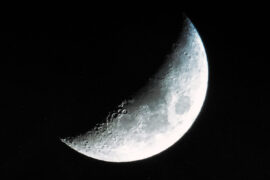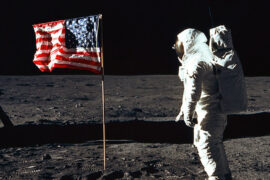Have you ever wondered what would happen if there was no Moon in the sky at night? Besides the obvious fact, that night would be much darker, it turns out Earth would be a lot different without a natural satellite up there.
The Moon is important to life on Earth because it plays a big role in many areas like the weather, migration cycles of some animals, Earth’s magnetic field, evolution, and it is even one of the main reasons why days are 24 hours long.
But how is it possible that an object that seems so far apart has this huge effect on what happens down here on Earth? Let’s take a look.
The Moon protected our atmosphere in its early days
Having an atmosphere is crucial to life as we know it. The atmosphere is the outer gas layer of Earth that holds all the oxygen we breathe and also serves other functions such as protecting us from ultraviolet radiation and cosmic rays.
But an atmosphere is easy for a planet to lose. Is the surface too hot? the atmosphere can evaporate. Is the planet too small? its gravity might not be enough to hold it. Big asteroid impact? the atmosphere could be gone with it.
Solar winds can also play a big factor in the odds for a young planet to be able to hold an atmosphere. Solar wind is a violent stream of charged particles the Sun shoots in every direction. Without the right protection, it can wreak havoc on the conditions of a planet, causing it, between other things, to lose its atmosphere.
At some point during the early days of the Moon, the Sun was going through a violent phase where Solar winds were much stronger.
Because the Moon was much closer to Earth back then, its magnetic field was close enough to serve as a literal shield and helped protect the atmosphere against those strong Solar winds.
Without an atmosphere, life on Earth would have probably never developed and we wouldn’t be here.
The Moon could have been (partly) responsible for life on Earth
The effect of the gravity of the Moon and Sun on Earth creates a bit of a tug-of-war between the two forces that slightly deforms the entire planet back and forth. This movement creates the tides of the oceans.
As we mentioned in the previous section, the Moon was at some point a lot closer to Earth. This meant that its gravitational pull on our planet was much stronger, making the movements of the tides more aggressive.
This could have had a few different effects on the appearance of life on Earth.
First, it’s possible the tides could have at least partially activated Earth’s plate tectonics. Thanks to this seismic activity, Earth’s surface can cool off, instead of having a hot, unhabitable surface like Venus.
Second, the tides could have dragged the necessary minerals and chemicals into the oceans that helped formed the primordial soup that led to the origin of life.
Finally, on top of that, the tides were probably also one of the factors that helped early forms of life to make the move from water to land.
It is important to note that these are still just theories. There’s still a lot of questions to be answered about the origin of life on our planet, however, even if only one of these theories holds true, it means the Moon played a huge role in the ability of our planet to have the necessary conditions for life to appear.
The Moon is the reason we have 24 hour days
Earth rotates across its own axis while it orbits around the Sun. Every one of these rotations is a day for us on Earth.
This rotation is also affected by the gravity of other objects, and as it turns out, it is heavily affected by the Moon.
The Moon was most likely created by the collision of a Mars-sized planet with Earth. This impact resulted in huge pieces of rock, and dust that were captured by Earth’s orbit and eventually were fused together by gravity to form the Moon.
Before this, scientists believe Earth’s rotation only took 6 to 8 hours, but the Moon’s gravity slows down this movement, turning it into the 24 hour days that we know.
This might seem like a lesser effect, but when you think of the repercussions, it is a huge deal for how life evolved on Earth.
Think about it, 8 hour days would mean that animal species on Earth would have to adapt to faster and wilder temperature changes and would have been probably been forced to evolve very differently.
Thanks to the Moon, we have a stable climate
Similar to the previous point. thanks to the Moon’s gravity, the tilt of the Earth is held in a more stable point. Without it, Earth would wobble around up and down quite a bit as it rotates.
This became great news for the stability of our climate. With these wild moves, winds, and clouds would move faster, creating more aggressive weather conditions that would result in a harsher environment for life.
These changes to Earth’s rotation and axis also result in the four seasons that we know and enjoy today, so when you dig into it, we have the Moon to thank for Summer weather.
The Moon can be our trampoline to space exploration
Launching things into outer space from Earth is extremely expensive because of its gravity. The good news is we have a natural satellite next door that doesn’t have this problem. Launching things into space from the Moon is way easier as its gravity is only 17% of Earth’s gravity.
Scientists think that in the future we could use the Moon as a hub to build and launch spaceships from.
The Moon has many resources that we could use to build said ships, but the most important one is ice, that when turned into water can be used to make fuel, eliminating the need to ship fuel from Earth, which is very expensive.
Because the Moon’s atmosmphere is so thin, it is also a great place to look at the stars. Earth’s atmosphere bends the light that we receive from far away stars and galaxies, losing data in the process and making it harder for us to study the universe.
This is less of a problem in the Moon, where setting up an observatory would result in a lot of additional information that could helps us learn more about the universe.
Summary
The Moon is important to our planet and life on Earth because of many reasons, including:
- The Moon’s magnetic field shielded Earth from the effects of the Sun’s radiation.
- The effect of the moon in the tides of the ocean might have helped create the condition for life as we know it on Earth.
- Moon’s gravity stabilized Earth’s rotation and tilt, making Earth’s climate and enviromental conditions a lot friendlier.
- The Moon has great conditions to be used as a base for space exploration.
Enjoyed this article?
Get daily 10-minute PDFs about astronomy to read before bed!
Sign up for our upcoming micro-learning service where you will learn something new about space and beyond every day while winding down.

